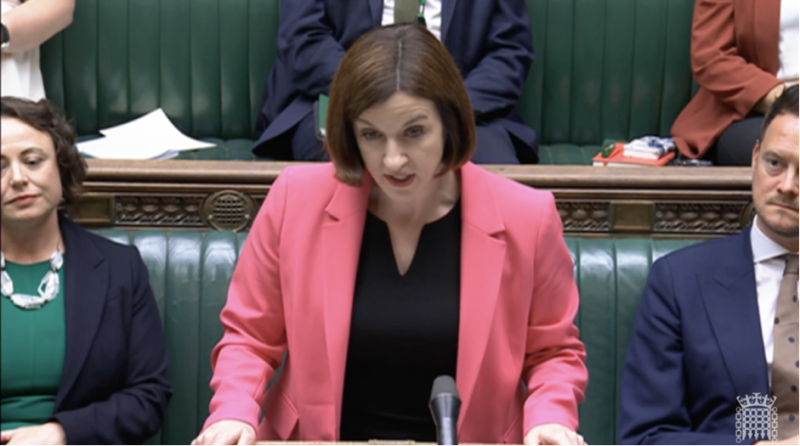Welcome to Bridgehead Education's latest monthly news roundup of 2024, that explores and analyses trends in the coverage of "further education" and "apprenticeship(s)" in the UK media landscape throughout August.
Do check out our all-new content hub for The Mark via the link here, and let us know what you think!
In August, there were 1,979 mentions of either "further education" or "apprenticeship(s)" in the UK media, a 12 per cent increase on recorded mentions in July.
However, the figures for this August represent a one per cent decline on those of the same month in 2023.
The chart below plots the mentions of "further education" and "apprenticeship(s)" in the media over the last twelve months.

All Quiet on the Recess Front
The excitement and activity of July, with a general election and change in government brought a, comparatively, calmer August to follow with Parliament in recess and many MPs focusing on setting up their offices and jetting away for a break before the House returns on September 2nd.
Much of the news regarded the decisions made by the Labour Government in its first month in office, namely the establishment of Skills England and pay decisions for teachers. The new Chancellor announced an additional £1 billion to support a 5.5 per cent pay increase for school teachers. However, the further education (FE) sector received no similar funding boost, causing significant disappointment. This lack of support raises the likelihood of a smaller pay raise for college staff, potentially widening the pay gap between FE colleges and schools, which already stood at £9,300 in 2023/24.
The disparity in how pay, funding, and VAT are handled by HM Treasury and the Department for Education (DfE) has resulted in a two-tier workforce within education—those in schools earning significantly more than their counterparts in colleges. Such is the discrepancy that it has clearly begun to undermine efforts to provide equal opportunities for all students.
The consequences of this funding gap are significant. Colleges struggle daily to compete with schools and industry for skilled teachers, especially in fields like construction, engineering, and health science, where professionals can earn more outside of education. Although there are non-financial rewards to working in colleges, it remains challenging to build a future-ready workforce with the limited funds available. Especially if immigration is set to fall, building that skills base in the UK is essential for a growing economy.
To support skills, the new Labour Government has introduced Skills England, a body designed to unite central and local governments, businesses, training providers, and unions to address the UK's skills needs. This new organisation will take over some functions from the Institute for Apprenticeships and Technical Education (IfATE) during a transition period, which poses challenges such as potential disruption and the need to maintain investment in skills training.
However, despite the possible benefits of this reform, there are enormous challenges too which think tank Reform have outlined in a recent article. Of particular concern is how flexible the new levy will be and whether it will support an increase in apprenticeships which have fallen dramatically by almost a third since the apprenticeship levy was introduced in 2017. Turning this figure around will be key in building the UK's skills base and supporting productivity growth.
Below are our top five stories of the month.

Earlier this week, the new Chancellor confirmed £1 billion in extra money for schools to cover a 5.5 per cent teacher pay rise. But to the huge disappointment of the further education sector, there was no extra funding to allow colleges to match this offer. When taken into context with the increase of 1.9 per cent in 16-18 funding and competing pressures on budgets, there is a real prospect of a lower pay award for college staff and a further widening of the pay gap between FE colleges with schools. This gap reached £9,300 in 2023/24.
BBC News - College lecturers urged to accept pay deal to end strikes

Scotland's largest teaching union has recommended its members accept a new pay offer from college employers in an effort to resolve long-running strikes. College lecturers in the EIS-FELA teaching union have gone on strike several times over pay since 2022. The latest offer would see staff get a rise of 4.14% next year - up from the 3% previously offered - on top of a £5,000 pay increase covering the three previous academic years. The union called off strikes which were due to take place this week as a token of goodwill in anticipation of a new offer.
FE News - What is Skills England and what does it mean for the skills sector?

Skills England is a body dedicated to ensuring that training provision is aligned with the needs of the economy. This will include identifying the training for which funding from the Growth and Skills levy will be accessible, giving businesses more flexibility to spend levy funds on training for the skills they need. Its implementation represents a significant step towards creating a more comprehensive and adaptable skills system that is critical to maintaining the UK economy. But despite the optimism from key voices in the skills sector, they caution that the success of the programme will depend on effective management of the interim period, inclusive policy development, a balanced approach to national and local priorities, and a system that recognises and builds on its previous successes.
London Loves Business - Interest in apprenticeships is at an all-time high

Analysis of Google search data reveals that online searches for “apprenticeship” hit their peak this year, having increased by 614% since records began in 2004. The insightful new research by experts at QR Code Generator suggests that students in recent years are more open to exploring alternatives to university than the students of 20 years ago. The search volume for “apprenticeship” remained steady throughout the 2000s until early 2011, after which the data shows a gradual year-on-year increase. In February 2024, the search volume hit its highest ever level.
FE Week - NHS to abandon ‘outstanding’ apprenticeship scheme in North East and Yorkshire

NHS leaders in the North East and Yorkshire are set to cut their decade-old apprenticeship provision next year, even after receiving top marks from Ofsted. The inspectorate published an ‘outstanding’ report for NHS England North East and Yorkshire last week and praised its “high quality” provision for 126 apprentices training across five health and engineering standards in the health service. But the report also revealed that NHS leaders in the region intend to “cease delivery” of apprenticeships from 2025 and are not currently recruiting new apprentices. Leaders explained the abandonment was to “fall in line with wider policy” following the merger of Health Education England and NHS England in April 2023.



